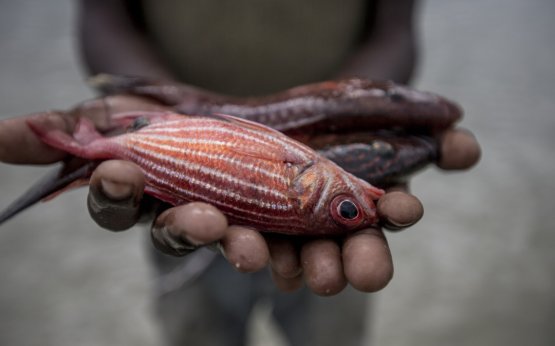His name is Xiphias Gladius, but we call him Mario, the solitary prince with just one hobby: swimming, and he does so all the time, even when he’s sleeping or eating. He lives in the Atlantic Ocean and every day covers hundreds of kilometres in search of food, but in just one thing he is truly methodical, like all his counterparts, namely holidays: these are sacred and always take place in the same place, by the sea of Sicily, and with just one objective, which is neither cultural nor culinary: he wants to pull.
As you may have guessed, Mario is a fish, a swordfish to be precise. For those like Mario one thing is decisive when looking for a partner, not so much the appearance, but as an old proverb goes, “better wed over the mixen than over the moor”. In order to like each other, origin is indeed essential. When swordfish finally find a partner that arrives exactly from where they come from, they court one another by swimming closely, looking in the eye and brushing against each other.

After the romantic phase, the female looks for a suitable place, withdraws and pours out 29 million eggs. At this point the male no longer can wander around cheerfully as he has the hard task of spawning them all, and with 29 million children romanticism is soon forgotten. Today, accomplishing this task is truly a Mission Impossible worthy of an action movie, because arriving there means you have survived the most fearsome predator of all, not the Mako shark, but man and his fleet.
Italy has authorised over 8,400 swordfish fishing vessels to work in the Mediterranean Sea, that is to say over 40% of the total fleets from 49 countries at work in the Atlantic Ocean and the Mediterranean Sea. Because of illegal fishing and of general overexploitation this species is seriously endangered in our seas and romantic holidays to Sicily are now just and old time memory. I remind those who eat lots of fish for health reasons of the strong presence of heavy metals because of bioaccumulation, a phenomenon that is particularly accentuated in predators that are high in the food chain, as with
Mario.
For sure, if you still haven’t made up your mind on the Christmas Eve menu and on those of the holidays in general, leave our swordfish friend in peace, just like other species going through hard times: tuna (red, yellow fin and obese), cod (both salted or as stockfish), anchovies, herrings, monkfish, red prawns and salmon. This doesn’t mean you can no longer eat/cook this fish, but give it time to reproduce and recover before it disappears from our seas for good.
As
Marco Costantini, Sea Programme Manager for
WWF Italia suggests, it is in general useful to prefer, at the fishmonger’s, fish that has the MSC certification and the ASC for farmed fish, which guarantee better fishing standards, and check size and origin. The WWF new
Fish Forward campaign has the objective of making European consumers aware of a more sustainable consumption that is not just led by habit or taste.
The restrictions implemented with red tuna fishing are giving excellent results so this makes us hopeful that a public action, if well enforced, can be efficient. While we wait for our government to decide to safeguard
Mario (and his summer holidays in Sicily), as consumers, chefs and restaurateurs we can immediately decide to make more sustainable choices. During
EXPO Milano 2015 I heard dozens and dozens of chefs and professionals speaking about food sustainability, this is a good chance to put those fine words into practice.